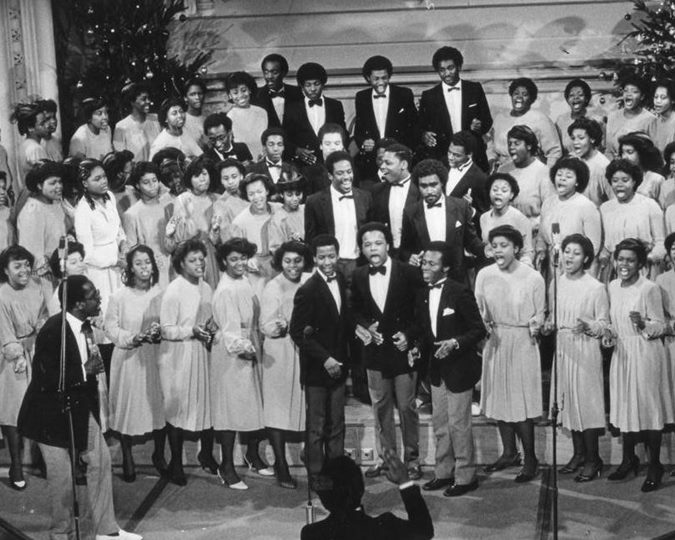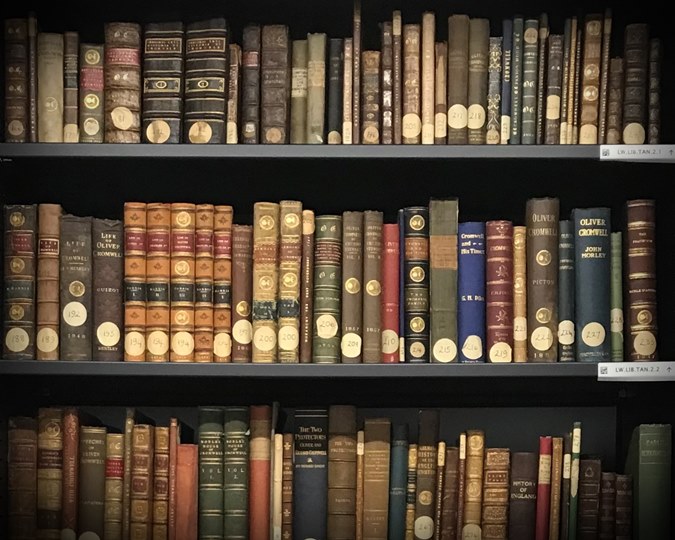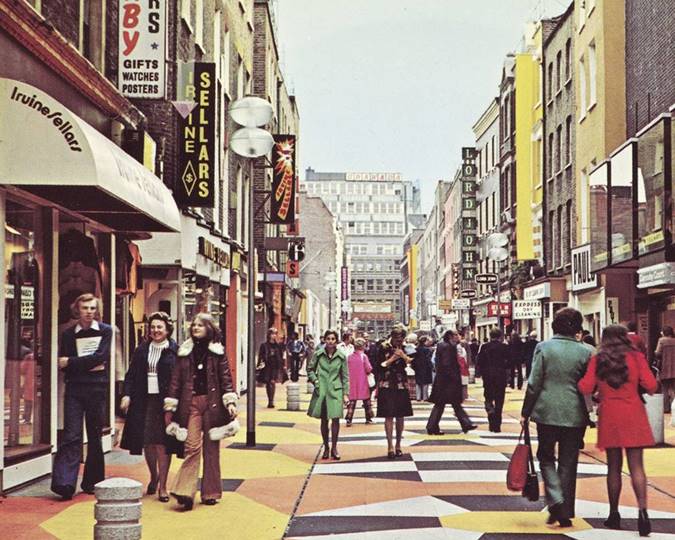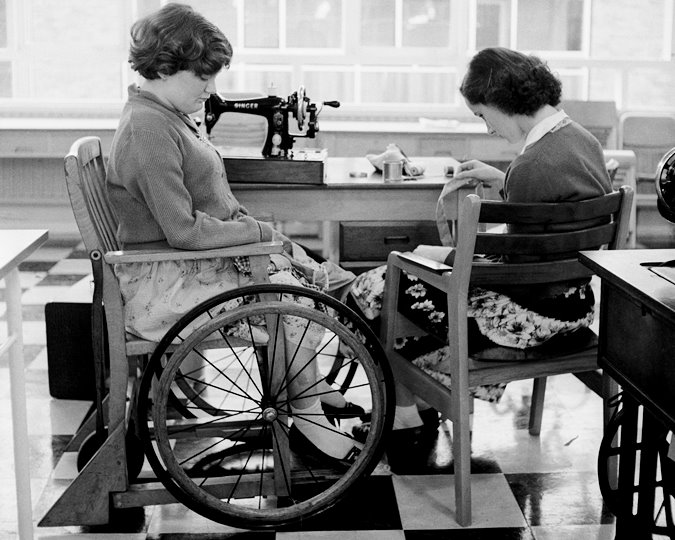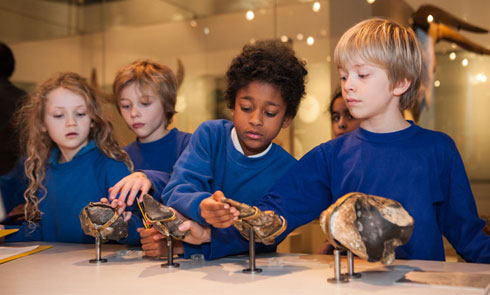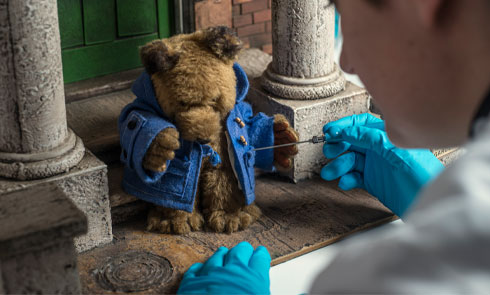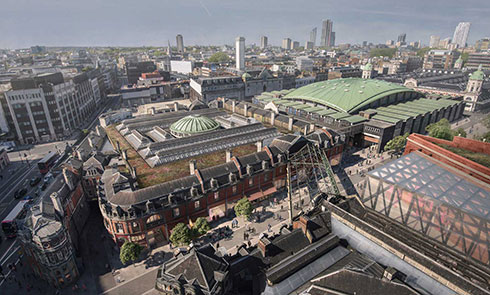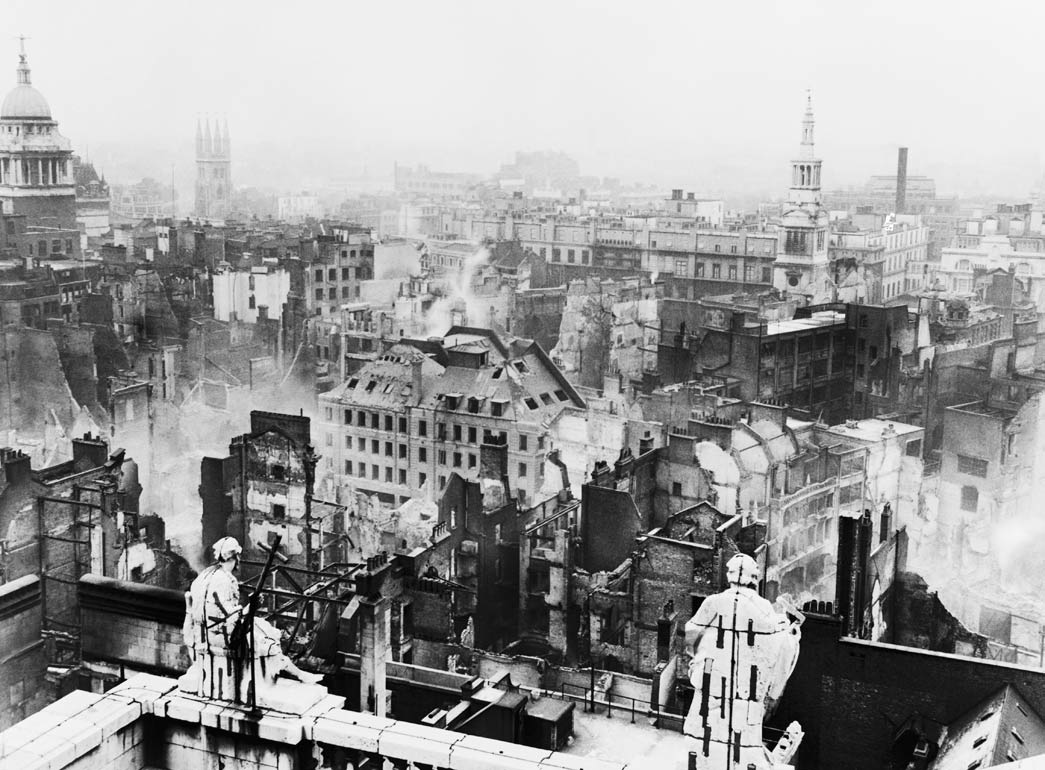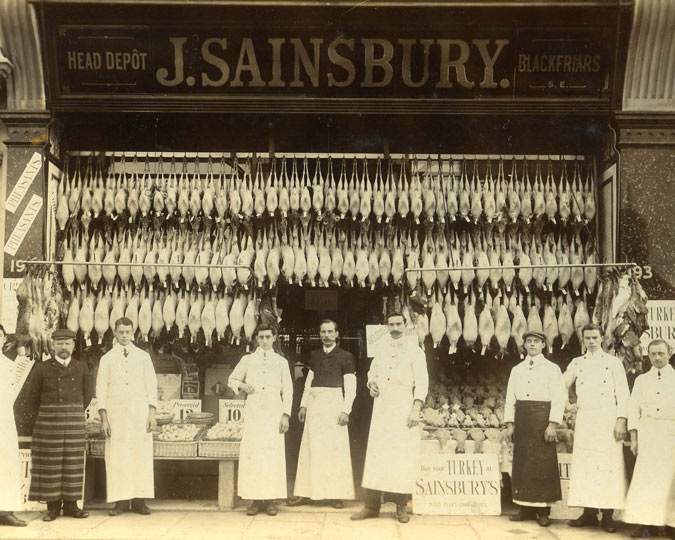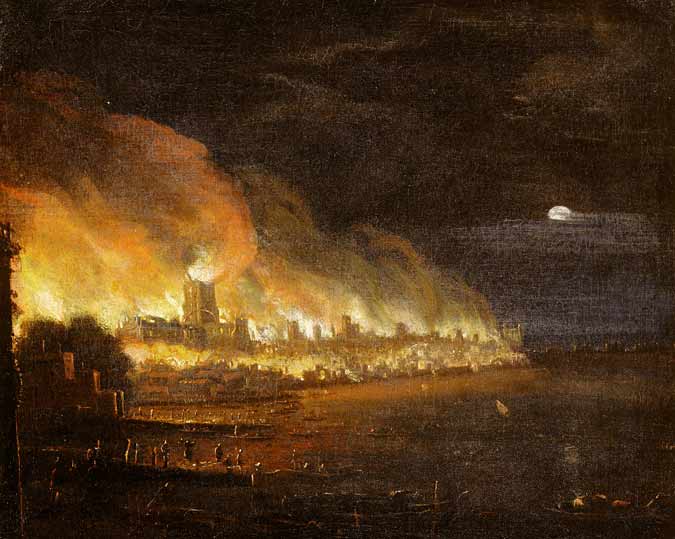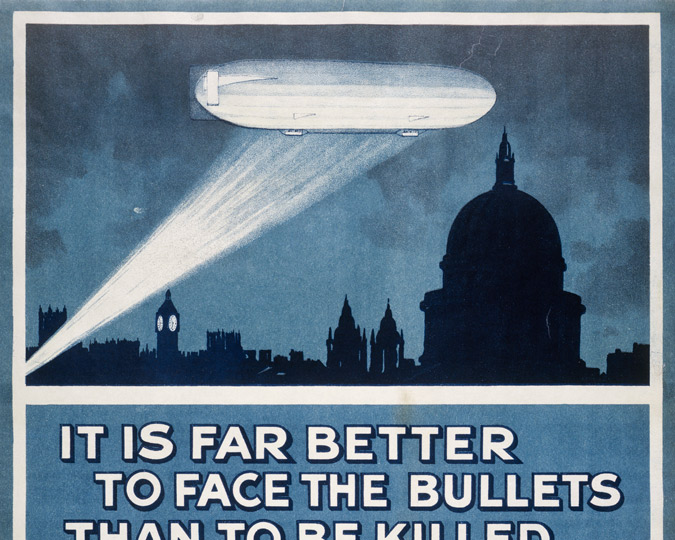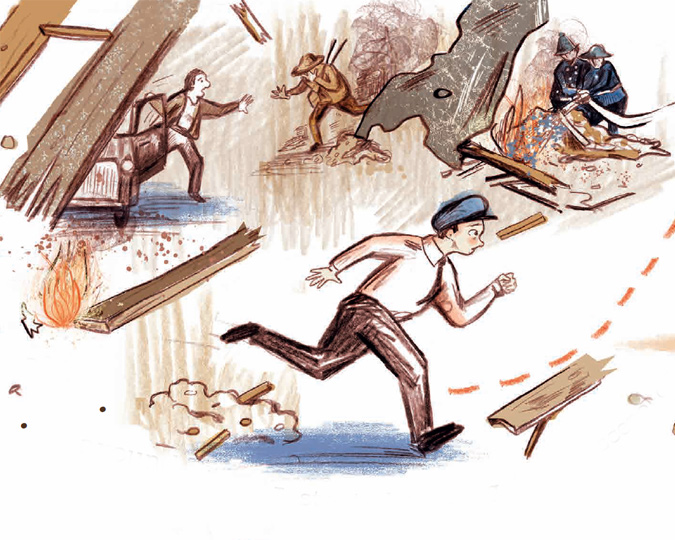On the night of New Year's Eve 1940, a London fireman sat down to write a letter to his wife. George Britchford had just come through one of the worst nights of the London Blitz, when devastating fires had ravaged the city and destroyed an area larger than the Great Fire of 1666. His letter, recently added to the Museum of London collection, is a fascinating glimpse into the darkest days of the Second World War and one Londoner's experience of it.
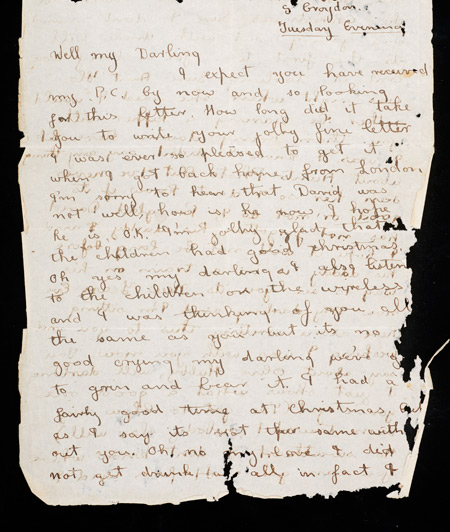
First page of George Britchford's letter, 31 December 1940
ID no. 2016.27
"My darling,
I expect you have received my P.C [postcard] by now and so looking for this letter. How long did it take you to write your jolly fine letter I was ever so pleased to get it when I got back home from London. I’m sorry to hear that David was not well, how is he now, I hope he is OK. I’m jolly glad that the children had good Christmas, oh yes my darling I also listen to the children on the wireless and I was thinking of you all the same as you but its no good crying my darling we’ve got to grin and bear it. I had a fairly good time at Christmas but as I say its not the same without you."
George Britchford was writing to his wife Kathleen, who had been evacuated to Newcastle with their two sons, Kenneth (7) and David (2), at the outbreak of the war. His letter contains a touching look into the realities of life in wartime London, ranging from a search for Wellington boots to send as Christmas gifts for his sons to the experience of battling the biggest blaze in the city's history.
George's son David donated the letter in early 2016, and spoke to us about the letter and what it meant to his family.
David Britchford: My dad died in 1972, but my mum lived to 103- she died very recently. When we were clearing out her bungalow, I found this letter in the top drawer of her writing bureau. She'd kept it tucked away, and I never knew of it in all these years- even though I'm mentioned on the first page of the letter.
After we first read it, we wondered what to do with the letter. It seemed a shame to keep it to ourselves- it said so much about the times in which it was written, and we knew it would just continue to deteriorate if not properly looked after. We approached the Museum of London and were delighted when they agreed to accept it. I don't think either of us realised that it was so significant, or that it would be used by researchers.
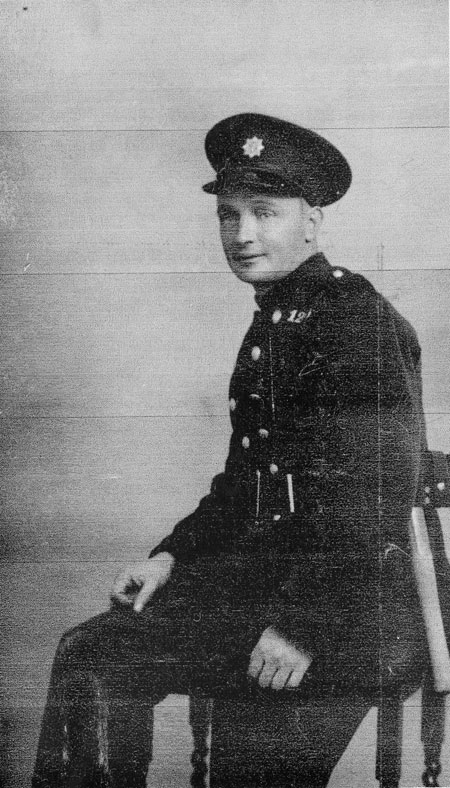
George Britchford, in fireman's uniform, c. 1940
ID no. 2016.27
"...Darling, it’s impossible to describe the scene that was there when we got there just after 9 [o'clock] it seemed as if the whole of London was on fire the great fire of London was nothing like it, we pumped water up from the Thames about 2 miles away... we fought the fires till we could hardly hold the hose and then we had a rest for a while and back at it we went."
The nine-page letter describes the events of two nights before, the 29 December 1940, when German bombers hit the historic City of London with over 124,000 bombs, including at least 100,000 incendiary bombs. The fires joined together into a conflagration that stretched from Islington to the edges of St Paul's Cathedral, and firefighters battled the blaze until the next afternoon.
David Britchford: What really brought it home to me was the timings- he says they didn't think they'd be able to get the fires under control until one o'clock the next afternoon. He and his mates had been on shift from perhaps six the day before. It's a hell of a stint when you're battling a hose, and they were absolutely black with soot and soaking wet. It's one thing to see the pictures of him in uniform, but this really put it in perspective.
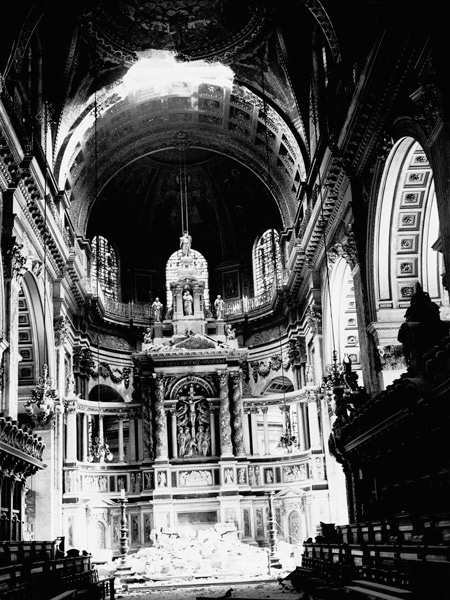
St Paul's Cathedral, October 1940
Interior view of the high altar damaged by a bomb explosion. By Kind Permission of The Commissioner of the City of London Police; ID no. IN6802
"It was terrible to look at in the daylight they were such high buildings and all that was left was one or two walls standing up. I think we all said a prayer when we heard the all clear go at 11 o'clock we knew that at least we were not going to be bombed as well, but I’m afraid that there are quite a few firemen that never came back there were so many buildings that crashed down and the poor devils didn’t have a chance, but there we have got to take risks and hope for the best, if we were in the army we should have more than that to face."
14 firefighters died on the night of the 29/30 December 1940, and over 250 were injured, to add to the hundreds of civilians who died from the bombs, fires and smoke. The attack devastated the old City of London, destroying 19 historic churches and 31 guildhalls, although St Paul's Cathedral was saved by the efforts of the firemen and 200 volunteers who extinguished fires after incendiaries hit the building.
David Britchford: My father never said a thing about his wartime experiences. Not to me anyway, nor to my brother. Even if he and my mother were talking about the war, if one of us came into the room they'd change the subject. It was a nasty thing, I don't think they wanted us to learn about it. That's why it was so extraordinary to find the letter and read his account for the first time.
I was only two years old at the time the letter was written, so I don't have any memories of our time in Newcastle. I do remember later in the war, when we went back to our house on Purley Road, in Croydon. I'd stand on the roof of the Anderson shelter to watch the buzz bombs [V1 rockets] fly overhead, with my mum yelling at me to get inside.
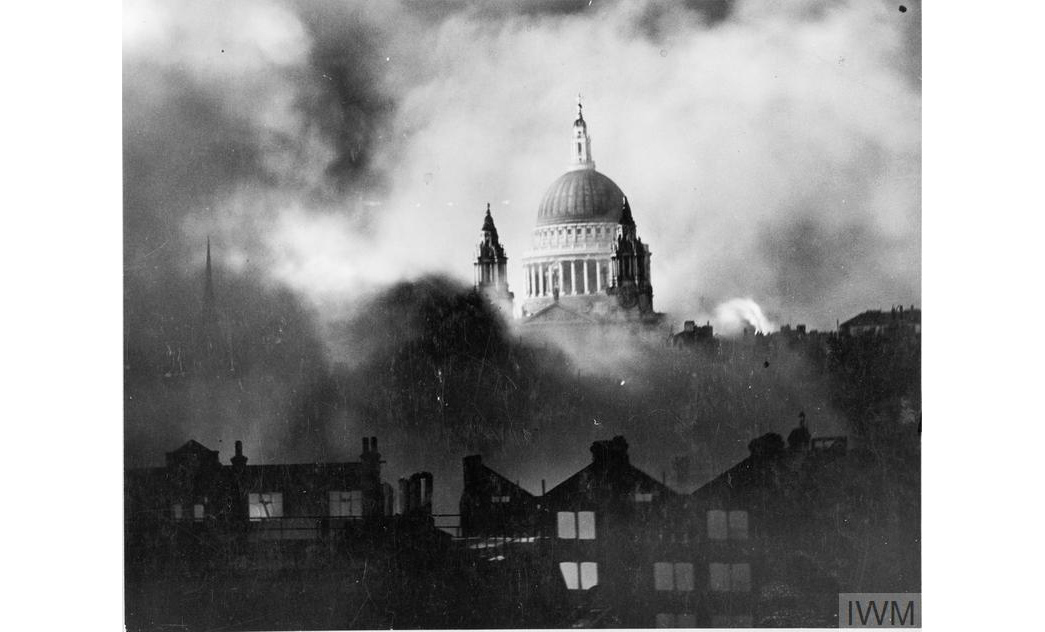
St Paul's Cathedral rises above the bombed London skyline, 29 December 1940
© Imperial War Museum, ID no. HU 36220A
Beverley Cook, Museum of London curator: Although we do already have items and oral histories from the Blitz, we do not currently hold any similar personal accounts written actually during the middle of the Blitz. The letter is significant because it is not an official version of events and war conditions but an informal, chatty letter. George's descriptive account is interspersed with snippets of local gossip and references to everyday life. Whilst 'normal' life appears to go on in spite of war, there are subtle indications of its impact, especially of the difficulty of being separated from his young children at Christmas.
Written so soon after the events of 29 December, the letter provides a highly personal account that would not have been found in formal newspaper reports of the events. Despite the devastating events George had witnessed that night, the letter also reveals George's stoicism and determination not to quit. He remains positive whilst having a strong sense of awareness of the historic events unfolding before him in what was subsequently referred to as the 'second great fire of London'. This awareness of his role in history being reflected in his rescue of two 'souvenirs' from the night- an incendiary bomb and a hand of the church clock at St Lawrence Jewry.
David Britchford: He bought home the clock hand folded up under his tunic- it had buckled in the heat of the fire. He used to keep that and the bomb in a little shed at the bottom of our garden. He did show me those, but he never told me about the events of the night itself. You know, I don't know what happened to that incendiary bomb.
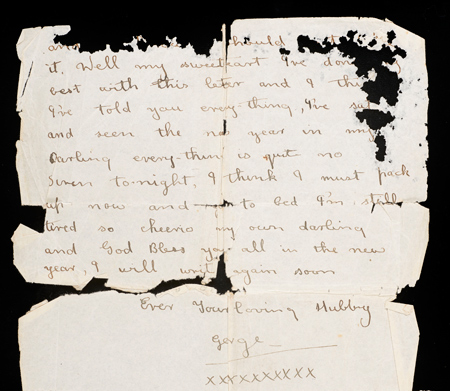
Last page of George Britchford's letter
ID no. 2016.27
"We got back 3 o'clock Monday afternoon and so you can understand why I overslept, best of it was I was supposed to be on week end leave. Well my darling such is life but I shall never forget that Sunday night as long as I live. [...]
Well my sweetheart I’ve done my best with this letter and I think I’ve told you everything, I’ve sat and seen the new year in my Darling everything is quiet no siren tonight, I think I must pack up now and go to bed I’m still tired so cheerio my own darling and God Bless you all in the new year, I will write again soon,
Ever your loving hubby,
George"
David Britchford: I'm just so pleased that this letter will be seen by people outside my family, so that people can get a little bit of better understanding about what things were like in the war. Every time I've been to the Museum of London there have been crowds of children there, and it's great for the younger generation to learn about London's history- and I suppose my dad is part of that history now.
Learn more about how Londoners survived and fought back during the Second World War at the Museum of London and the Museum of London Docklands.

